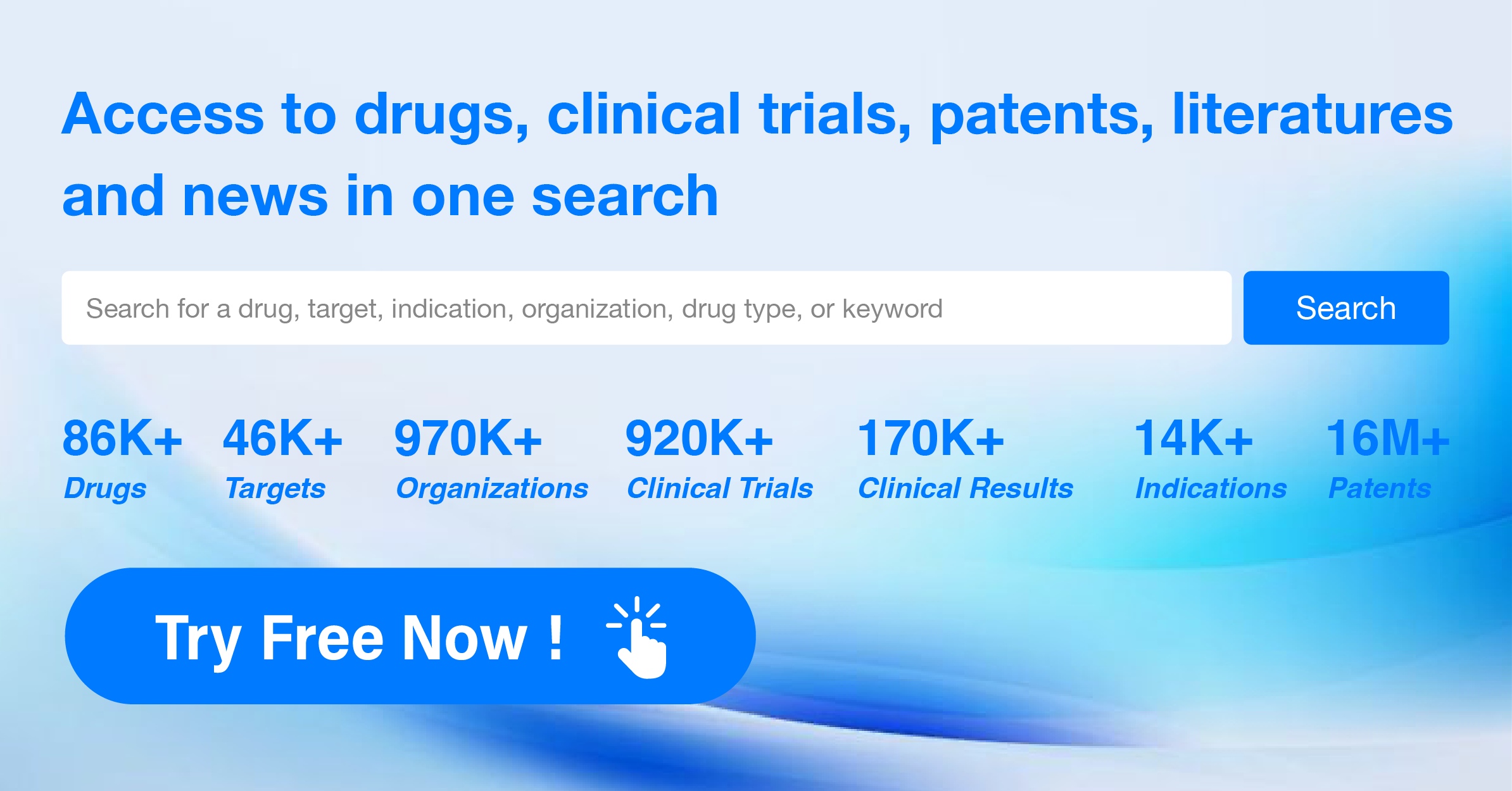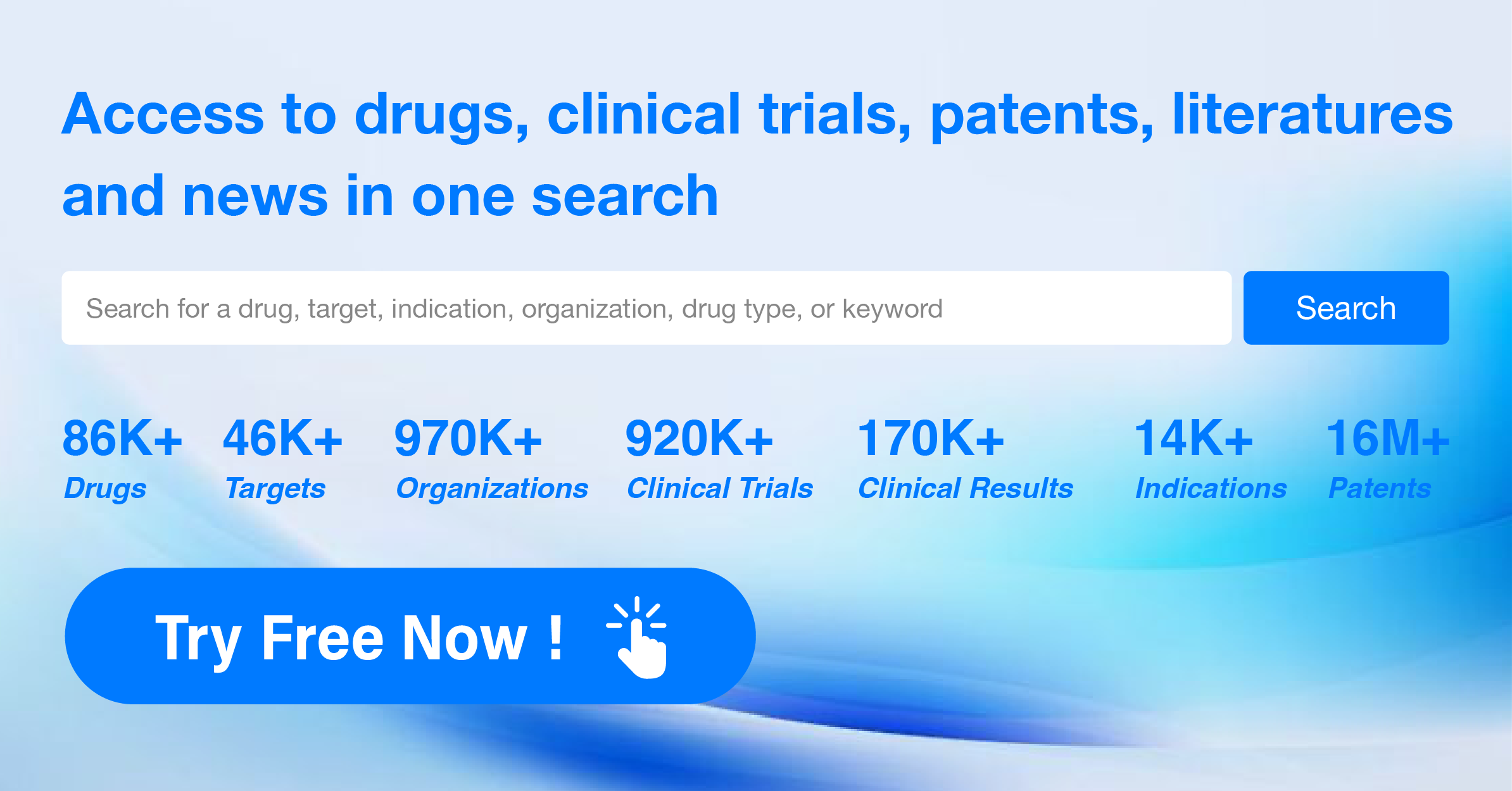Global New Drug Research and Development Progress Weekly Report(5.6-5.12)
Global Pharmaceutical Research and Development Progress
1.Betta Pharmaceuticals Announces Submission of Marketing Application for Small Molecule New Drug BPI-16350 Capsules
On May 6th, Betta Pharmaceuticals announced that its Class 1 new drug, BPI-16350 capsules, has been accepted for review by the Center for Drug Evaluation (CDE) of the China National Medical Products Administration. The indication for use of BPI-16350 is in combination with fulvestrant for patients with hormone receptor (HR) positive, human epidermal growth factor receptor 2 (HER2) negative locally advanced or metastatic breast cancer that has progressed following prior endocrine therapy. BPI-16350 is an innovative small molecule developed by Betta Pharmaceuticals, characterized by its novel structure as a cyclin-dependent kinase (CDK4/6) inhibitor.
According to a press release from Betta Pharmaceuticals, BPI-16350 inhibits the activity of CDK4/6 kinases, preventing the phosphorylation of the key downstream signaling molecule Rb, thereby suppressing the proliferation of Rb-positive tumor cells. At the kinase level, BPI-16350 displays good selectivity for CDK4/6 targets within the CDK family, with inhibitory activity comparable to other approved products targeting the same receptors, but with superior subtype selectivity.
2.CStone Pharmaceuticals Announces Latest Research Data on ROR1-Targeted ADC
On May 6th, CStone Pharmaceuticals announced that the latest research data for their product CS5001, a ROR1-targeted ADC, from their development pipeline 2.0, will be presented in the form of a poster at the 2024 American Society of Clinical Oncology (ASCO) Annual Meeting. The meeting is scheduled to take place from May 31 to June 4, 2024, in Chicago, USA. CS5001 is an Antibody-Drug Conjugate (ADC) targeting the Receptor Tyrosine Kinase-Like Orphan Receptor 1 (ROR1), initially synthesized by the South Korean biotech companies LegoChem Biosciences (LCB) and ABL Bio. In October 2020, CStone Pharmaceuticals entered into a licensing agreement with LCB for the development and commercialization of CS5001. Under the terms of the agreement, CStone has acquired exclusive development and commercialization rights for CS5001 outside of Korea, in all other global markets. CS5001 utilizes a tumor-specifically activated Pyrrolobenzodiazepine (PBD) prodrug payload and linker. In several preclinical cancer models, CS5001 has demonstrated significant tumor suppression and exhibited a favorable serum half-life and pharmacokinetic profile.
3.Keymed Biosciences' Alzheimer's disease antibody therapy, CM383 injectable solution, receives clinical trial approval
On May 6th, the official website of the Center for Drug Evaluation (CDE) of China's National Medical Products Administration showcased that Keymed Biosciences’ Class 1 new drug, CM383 injectable solution, has been implicitly granted permission for clinical trials aimed at treating Alzheimer's disease. According to information from Keymed Biosciences’ official website, CM383 is a monoclonal antibody targeting amyloid-beta (Aβ) protein, and it marks the company's first drug for neurodegenerative diseases. Publicly available data from Keymed Biosciences indicate that, compared to other drugs targeting the same biomarker, CM383 demonstrates superior binding specificity, lower immunogenicity, a longer half-life, and enhanced in vivo activity in facilitating the clearance of Aβ. The clinical trial application for CM383 was accepted by the CDE in February this year. Following the successful approval of the clinical trial application for CM383, Keymed Biosciences may initiate a Phase I clinical study in healthy volunteers to assess the safety, tolerability, pharmacokinetics, pharmacodynamics, and immunogenicity of a single escalating dose. This development promises the advent of a more effective new drug in the field of Alzheimer's disease.
4.Jiakesi New Drug Development Announces NDA Submission for KRAS G12C Inhibitor Glecirasib in China
On May 6, Jiakesi announced that the New Drug Application (NDA) for its self-developed KRAS G12C inhibitor, glecirasib, was officially submitted to the Center for Drug Evaluation (CDE) of the China National Medical Products Administration. The application seeks approval for the treatment of patients with advanced or metastatic non-small cell lung cancer (NSCLC) harboring the KRAS G12C mutation, who are on second-line treatment or beyond. Glecirasib (JAB-21822) is a KRAS G12C inhibitor independently developed by Jiakesi. Jiakesi has initiated several Phase 1/2 clinical trials across China, the United States, and Europe for patients with advanced solid tumors. This includes pivotal trials in NSCLC in China, monotherapy trials in NSCLC with co-mutation of STK11 as a first-line treatment, combination therapy trials with the SHP2 inhibitor JAB-3312 for NSCLC, combination therapy with cetuximab in colorectal cancer, as well as registrational studies of glecirasib as a monotherapy in pancreatic cancer. According to a Jiakesi press release, the NDA submission is grounded on the results of a Phase 2 registrational clinical study conducted in China. This study evaluates the efficacy and safety of glecirasib monotherapy in patients with NSCLC who have the KRAS G12C mutation.
5.Johnson & Johnson's prostate cancer treatment Erleada reaches primary endpoint in Phase 2 clinical trial
Johnson & Johnson recently announced the results of the open-label, single-arm Phase 2 clinical trial Apa-RP. This study evaluated the efficacy of using Erleada (apalutamide) in conjunction with androgen deprivation therapy (ADT) as adjuvant treatment in patients with high-risk localized prostate cancer (HRLPC) who have undergone radical prostatectomy (RP). The study found that patients treated with this regimen had a 0% biochemical recurrence (BCR) rate at 24 months post-RP. The study achieved its primary endpoint, showing that patients receiving 12 months of Erleada plus ADT as post-RP adjuvant therapy did not experience confirmed biochemical recurrence during an additional 12 months of follow-up. Additionally, the serum testosterone recovery rate (≥150 ng/dL) at 12 months was 76.4% (95% CI, 65.0–84.5). The safety profile of combined treatment with Erleada and ADT was consistent with previous data: 99.1% of patients reported treatment-emergent adverse events (TEAEs), with 22.2% of these events being grade 3-4.
6.Argo Biopharma Announces First Patient Dosing in Phase 2 Clinical Trial of siRNA Therapeutic for Severe Hypertriglyceridemia
On May 7th, Argo Biopharma announced that the first subject has been dosed on April 29, 2024, in the Phase 2 clinical trial of BW-01, targeting severe hypertriglyceridemia. BW-01 is a cardiovascular siRNA (small interfering RNA) therapeutic independently developed by Argo Biopharma. siRNA therapeutics represent a forefront pharmaceutical technology that has emerged in recent years, featuring numerous druggable targets, strong therapeutic effects, good safety profile, low dosing frequency, and a broad range of indications covering cardiovascular diseases, rare diseases, neurological disorders, viral hepatitis, ophthalmological conditions, and cancer, making it one of the fields with great developmental potential globally. In January 2024, Argo Biopharma announced a multi-project RNAi licensing and strategic collaboration agreement with Novartis. According to the agreement, Argo Biopharma will receive an upfront payment of $185 million from Novartis, along with potential milestone payments totaling nearly $4.2 billion, and tiered royalties on commercial sales.
7.Sanofi Announces Submission for Market Approval of the Innovative Hemophilia Therapy, Fitusiran Injection, in China
On May 7th, the Center for Drug Evaluation (CDE) of China's National Medical Products Administration announced the acceptance of a new drug application for the Class 1 medication, fitusiran injection, jointly submitted by Sanofi and Genzyme. Publicly available information reveals that fitusiran is a small interfering RNA (siRNA) therapy developed for the treatment of hemophilia. It is intended as a prophylactic treatment for patients with Hemophilia A or Hemophilia B, whether they produce inhibitors against clotting factors or not. Administered through subcutaneous injection, fitusiran promises to provide preventive treatment for all types of hemophilia patients.
During two Phase III clinical studies, the annualized bleeding rate for patients receiving a monthly subcutaneous injection of fitusiran was reduced by 90% compared to the control group. According to Sanofi's disclosure, fitusiran works by lowering levels of antithrombin (a protein that inhibits blood clotting), thereby promoting the production of thrombin, rebalancing hemostatic function, and preventing bleeding. The product utilizes ESC-GalNAc conjugate technology developed by Alnylam Pharmaceuticals, enhancing its potency and durability when administered subcutaneously.
8.Eli Lilly announces that the FDA is set to convene a critical meeting to discuss the marketing application for its AD antibody therapy, donanemab
Eli Lilly and Company announced that the U.S. FDA’s Peripheral and Central Nervous System Drugs Advisory Committee (PCNS) will convene a meeting on June 10, 2024, to discuss the market application of its Alzheimer's disease (AD) antibody therapy, donanemab, for the treatment of early symptomatic Alzheimer's disease. The application for donanemab is primarily based on the results of the phase 3 study, TRAILBLAZER-ALZ 2. This trial is a double-blind, placebo-controlled study designed to assess the safety and efficacy of donanemab in patients aged 60-85 with early symptomatic AD, diagnosed with mild cognitive impairment or mild dementia caused by AD, and confirmed AD neuropathological characteristics. Participants were stratified according to the levels of tau displayed in their positron emission tomography (PET) imaging into low-medium tau or high-tau groups (representing later stages of disease progression). All participants were then evaluated over 18 months with cognitive and functional scales, including the Integrated Alzheimer's Disease Rating Scale (iADRS) and the Clinical Dementia Rating-Sum of Boxes (CDR-SB), where a higher score indicates lower clinical functioning.
9.Positive Phase 2b Clinical Outcomes for ALS Small Molecule Therapy PrimeC
On May 8th, NeuroSense Therapeutics announced new analysis results from its Phase 2b clinical trial, PARADIGM. The analysis revealed that patients with high-risk Amyotrophic Lateral Sclerosis (ALS) treated with its investigational therapy, PrimeC, exhibited a significant 43% slowing in disease progression compared to the placebo group (p=0.02). The company plans to use these data to help design an upcoming pivotal clinical trial to improve the chances of success. The data analysis indicated that, after 6 months of treatment, the ALS Functional Rating Scale-Revised (ALSFRS-R) scores for the PrimeC group showed a favorable difference of 5.04 points compared to the control group (CI: 0.862, 9.214; n=38). NeuroSense's leading candidate drug, PrimeC, is a novel extended-release oral formulation that contains two FDA-approved drugs: Ciprofloxacin and Celecoxib. PrimeC aims to synergistically target multiple key mechanisms of ALS including motor neuron degeneration, inflammation, iron accumulation, and RNA regulation abnormalities to potentially inhibit the progression of ALS. PrimeC has been granted Orphan Drug Designation by both the United States FDA and the European Medicines Agency.
10.Freeline Therapeutics Announces Latest Positive Clinical Results for its Potential "First-in-Class" Gene Therapy
On May 10th, Freeline Therapeutics released the latest clinical data from the ongoing Phase 1/2 GALILEO-1 trial. Analysis has shown that their investigational gene therapy, FLT201, significantly reduces levels of glucosylceramide lyase (lyso-Gb1) in patients with Type 1 Gaucher disease who have been on long-term existing therapies. Lyso-Gb1 is one of the best predictive markers for clinical response. Additionally, preliminary indicators of improvement in bone marrow burden and fatigue were also noted in patients. GALILEO-1 is an international multicenter, dose-exploratory study focused on adults with Type 1 Gaucher disease. FLT201 is a potential "first-in-class" and "best-in-class" investigational adeno-associated virus (AAV) gene therapy for treating adults with Type 1 Gaucher disease. The therapy is designed to provide a one-time treatment that durably increases GCase expression in patients and reduces the accumulation of harmful substrates, potentially halting disease progression and eliminating the need for lifelong treatment. FLT201 utilizes Freeline's AAVS3 capsid to introduce a novel gene into liver cells, producing a rationally designed GCase variant. In preclinical studies, this GCase variant exhibited a half-life in lysosomal pH conditions that was more than 20 times greater than that of the wild-type human GCase.
For more information on the progress of drug development, please follow the Synapse database.
Dynamics of Global Pharmaceutical Trade Cooperation
1.Sino Biological Completes Acquisition of SignalChem Biotech
Recently, Sino Biological has completed the acquisition of SignalChem Biotech Inc., based in Vancouver, Canada. Following this transaction, Sino Biological now owns 100% of the shares, making SCB a wholly owned subsidiary. SCB is a biotechnology company located in the Vancouver area of Canada and is one of the representative enterprises in the kinase field, focusing on the research, development, and production of high-quality enzyme proteins. Over the past twenty years, SCB has established a production and quality control platform with independent intellectual property rights, setting industry standards for the development and production of high-quality bioactive enzyme proteins, and providing enzyme products for scientists from basic research to drug discovery and development. As a wholly owned subsidiary of Sino Biological, SCB will bring professional and leading enzyme reagent research and development and production technologies, expand the existing technology platform, and enhance the technical strength of the company. The collaboration between Sino Biological and SCB will provide more comprehensive products and technical services for life science research, as well as broader support, promoting innovative development in fields such as new drug discovery, pharmacological mechanism research, and basic scientific research.
2.Over $480 Million Collaboration to Develop Small Molecule Therapy! Pivotal Phase 3 Clinical Trial Soon to Launch
On May 7th, Gossamer Bio and Chiesi Farmaceutici announced that they have entered into a global collaboration and licensing agreement to jointly develop and commercialize seralutinib for the treatment of Pulmonary Arterial Hypertension (PAH) and Pulmonary Hypertension associated with Interstitial Lung Disease (PH-ILD). The collaboration could be worth more than $480 million. In the Phase 2 clinical trial named TORREY, after 24 weeks of treatment, patients in the seralutinib group showed an average reduction of 14% in pulmonary vascular resistance compared to the placebo group (p=0.0310). In a subset of PAH patients with more severe symptoms, pulmonary vascular resistance was even reduced by 21% (p=0.0427), and the 6-minute walk distance increased by 37 meters compared to the placebo group. Additionally, compared to placebo, patients treated with seralutinib also demonstrated a significant decrease in the cardiac dysfunction biomarker serum N-terminal pro-brain natriuretic peptide (NT-proBNP). Under the terms of the agreement, Gossamer will continue to lead global development for PAH and PH-ILD. The two companies will share development costs equally. Gossamer will lead the commercialization efforts for PAH and PH-ILD in the U.S., while Chiesi will handle the commercialization of all other indications in the U.S. and will exclusively own the rights to commercialize seralutinib outside the U.S.
3.Sciwind Biosciences Licenses GLP-1 Agonist Rights in South Korea
On May 7th, Sciwind Biosciences announced that it has entered into a collaboration agreement with the South Korean pharmaceutical company, HK inno.N Corporation, to license the development and commercialization rights of Ecnoglutide (XW003) injection in South Korea. Under the agreement, Sciwind will receive an upfront payment, as well as milestone payments that could reach up to $56 million related to the development, registration, and commercialization of the product, including double-digit sales royalties following commercialization. HK inno.N Corporation will obtain exclusive rights to develop and commercialize Ecnoglutide injection in Korea. Sciwind retains the rights to develop and commercialize Ecnoglutide injection in all other global markets.
In Phase I and Phase II clinical studies, Ecnoglutide demonstrated good safety and tolerability profiles, benefiting patients with type 2 diabetes and obesity. Leveraging robust efficacy and safety data, in January 2023, Sciwind initiated a Phase III clinical trial (NCT05680129) comparing Ecnoglutide with Dulaglutide for the treatment of type 2 diabetes patients with inadequate glycemic control following Metformin treatment. In March of the same year, Sciwind also launched a Phase III registration clinical trial in China for Ecnoglutide in overweight/obese patients, marking the second domestic GLP-1 receptor agonist following Beinaglutide to start a weight-loss Phase III clinical trial. Top-line data from these Phase III studies are expected to be obtained this year.
4.BioNTech Secures Global Exclusive Option for Pumis Biotechnology’s Pre-Clinical Bispecific Antibody
On May 8, Pumis Biotechnology announced that BioNTech has exercised a global exclusive option. Under this option, BioNTech will acquire worldwide rights for the development, production, and commercialization of a pre-clinical bispecific antibody candidate independently developed by Pumis. If the candidate drug is successfully developed and authorized, Pumis will receive option exercise fees and additional payments following the product's market entry. The exercise of this option is based on the strategic research collaboration, project introduction option, and global licensing agreement signed between Pumis and BioNTech in July 2023. The agreement grants BioNTech an exclusive global option for a pre-clinical, research-phase bispecific antibody developed by Pumis for the treatment of malignancies, as well as for a clinical-phase bispecific antibody.
5.Shionogi Secures Global Rights to Novel Small Molecule Drug with $150 Million Upfront Payment
On May 10, Shionogi & Co., Ltd. announced the establishment of an exclusive licensing agreement with Maze Therapeutics. Under this agreement, Shionogi has acquired the global exclusive rights to develop MZE001 and will make an upfront payment of $150 million. Additionally, Maze is eligible to receive milestone payments based on development, regulatory approvals, and commercial achievements. MZE001 is an investigational oral therapy for Pompe disease, which has shown positive results in its Phase 1 clinical trials. According to a press release from Shionogi, MZE001 has the potential to become the first oral medication for the treatment of Pompe disease.
MZE001 functions as a selective inhibitor of the enzyme glycogen synthase 1 (GYS1), working by reducing glycogen concentrations in the muscles. As detailed in the press release from Shionogi, MZE001 not only has the potential to be used as a standalone treatment but also as an adjunct therapy to enzyme replacement, thereby enhancing the therapeutic options available to Pompe disease patients. In 2022, MZE001 was granted Orphan Drug Designation by the U.S. FDA.
Novo Nordisk Commits $600 Million to Next-Generation Weight Loss Therapies
On May 10th, Metaphore Biotechnologies announced a collaboration with Flagship Pioneering and Novo Nordisk, amounting to a total of $600 million, aimed at developing next-generation therapies for weight reduction. Metaphore, a biotechnology company founded by Flagship in 2021 and emerging from stealth mode in May last year, combines machine learning and molecular simulation to design innovative therapies, with a particular focus on targeting previously challenging drug targets. The company's MIMIC platform is a computation-driven biological platform designed to optimize new therapies in terms of function, specificity, and selectivity. This collaboration will leverage Metaphore's MIMIC platform to design multitarget therapies focusing on the GLP-1 receptor and associated biological mechanisms, working to develop commercially scalable long-acting formulations to reduce dosing frequency. The partnership is part of an extensive strategic collaboration between Novo Nordisk and Flagship Pioneering, aimed at jointly developing new treatments for cardiac metabolic diseases and rare conditions.





